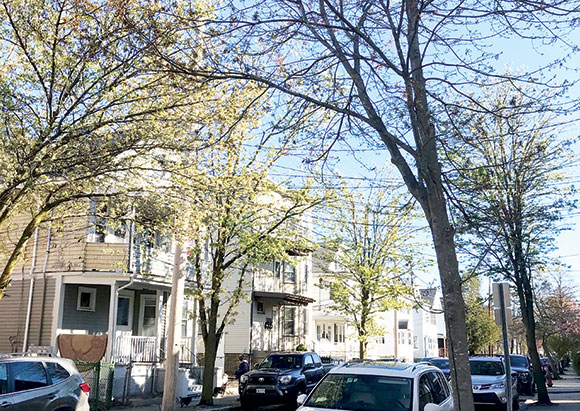
The Somerville City Council’s Legislative Matters Committee recently discussed possible measures pertaining to rent stabilization in the city.
By Jennifer Purcell
The process to stabilize rent in Somerville is now well underway. On Tuesday, November 14, Somerville’s Legislative Matters Committee met once more to discuss the future of rent and how they could make the current and future situations as easy as possible for both renters and landlords by inviting the director of the Office of Housing Stability Ellen Shachter to give a presentation that detailed what enforcing rent stabilization would look like and how it would benefit the community.
There are six steps to the Home Rule Petition, with those being a.) to submit a draft to the city council, b.) for the city council to review the draft, c.) to submit the draft for the state to review, 4.) for the state to approve the draft, 5.) to draft the ordinance, and 6.) to start board and regulation development. They are currently on step two: reviewing the draft before submitting it to the state. According to Shachter, the earlier it is submitted, the better.
Rent cap and base rents
In order to make this change easier for all parties, Shachter proposed the idea of having two separate base rents: one for occupied units and another for vacant units. Any landlord who owns an occupied unit at the time of the local ordinance passage will be required to set the base rent to the amount that was charged twelve months prior, and any landlord owning a vacant unit will be required to charge the last rent charged. This is unless there has been no rent charged in the last five years, in which case the landlord can set their own base rent. Additionally, if the rent is to be raised, she proposed an annual rent cap of 2% to 5%.
However, there would be several potential exceptions to the annual rent cap, including certain maintenance and capital costs, utility costs for which the owner is responsible, and rapid increases in property taxes.
There would also be a few exceptions to rent stabilization in general, but only under very specific circumstances that include:
- Owner-occupied buildings that have 3 units or less.
- New construction for the first 15 years after certificate of occupancy.
- Public housing; multi-family housing with project-based rental subsidies.
- This would not exempt units with tenant-based vouchers.
- Units where the owner shares a kitchen and bathrooms with tenants in their own apartments.
- Hotels/motels/other transient guest housing.
- Dormitories/religious facilities/extended care/residential care, etc.
However, this is where an issue arose amongst the Committee members. They seemed to be on board with a majority of these ideas with the exception of the second point regarding new construction. Committee Chair and Ward 6 Councilor Lance Davis worried that exempting new buildings would cause problems for tenants 10 or 15 years in the future when the buildings do qualify for rent stabilization because of the way they will be marketed (likely as luxury buildings).
Just cause eviction protections
As a part of rent stabilization, they will also be implementing just cause eviction protections which would protect tenants from being evicted for arbitrary, discriminatory, and retaliatory reasons. The Office of Housing Stability has since compiled a list of reasons why landlords would be able to evict tenants, which they plan on following strictly:
- Failure to pay rent.
- Substantial violation of material term of lease.
- Substantial damage to unit.
- Criminal activity that threatens the health and/or safety of residents or persons lawfully on the premises.
- Owner wants unit for own use or for family use.
- Owner would like to convert the unit to condos, to demolish and convert to non-residential use.
The City Council will determine any additional grounds for eviction by the local Ordinance.
Vacancy decontrol
After much discussion, it was decided by the Office of Housing Stability and the Council that they will not implement vacancy decontrol in this Home Rule Petition. Shachter’s reasoning for this is that “vacancy decontrol creates a strong financial incentive to force tenants out of their homes.” If vacancy decontrol were to be implemented, it would allow landlords to set base rents for new tenants with no limit whatsoever.
Conclusion
After a long discussion on the matter, Chair Davis and Ward 3 Councilor Ewen-Campen expressed that they did not feel that this draft was ready to send to the state. The meeting ran for the full time and Davis felt that there was still more to be discussed, therefore it was decided that they would keep this in the committee for now and circle back to it in the near future.












Reader Comments